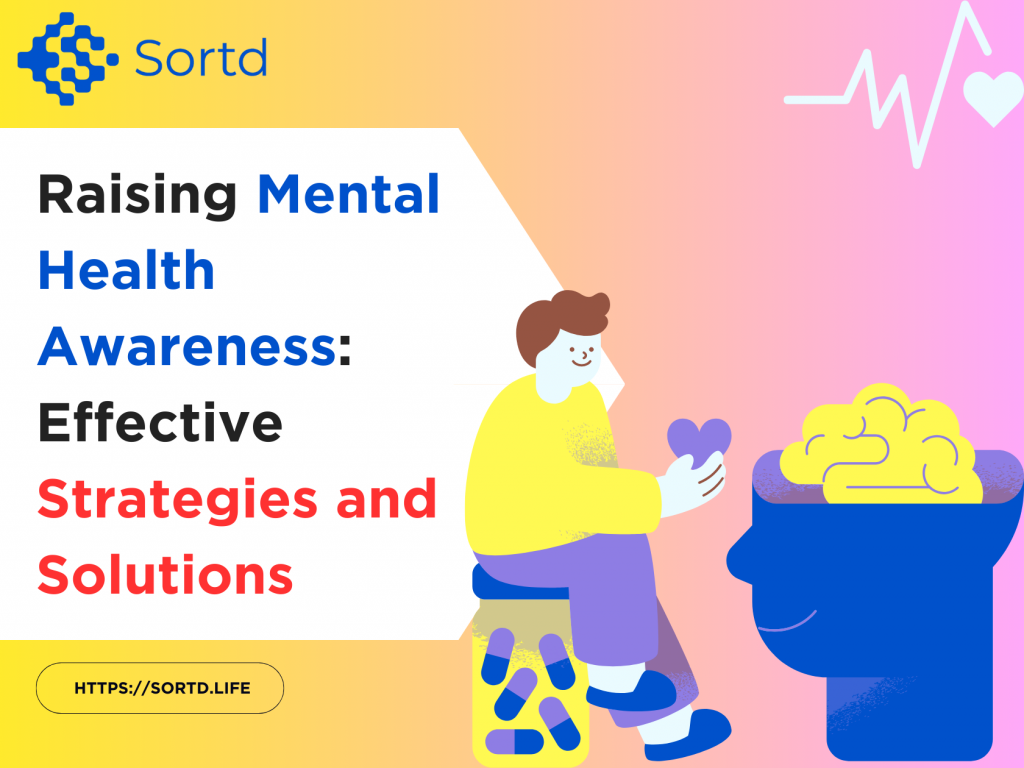
In the fast-paced and interconnected world we live in, prioritizing mental health is more critical than ever. This article delves into the intricacies of mental health awareness, exploring effective strategies for bringing about positive change in societal perceptions and individual lives.
Importance of Mental Health Awareness
In a society that often overlooks mental health, creating awareness is paramount. Understanding the significance of mental well-being contributes to a healthier and more compassionate community.
- Current Mental Health Landscape
Before exploring strategies for change, it’s vital to comprehend the prevailing mental health landscape. Mental health challenges affect people across demographics, emphasizing the need for comprehensive awareness.
- Definition and Scope
Mental health encompasses emotional, psychological, and social well-being. It is the foundation for resilience, relationships, and overall life satisfaction.
- Common Mental Health Challenges
Recognizing prevalent challenges like anxiety and depression is crucial. Acknowledging these issues reduces stigma and paves the way for supportive conversations.
The Need for Awareness For Mental Health
- Stigmas Surrounding Mental Health: Stigmas attached to mental health often hinder open discussions. Overcoming these stigmas is crucial for fostering a culture of understanding and acceptance.
- Impact of Ignorance on Individuals and Society: Ignorance about mental health has far-reaching consequences, from strained relationships to decreased societal productivity. Raising awareness is a proactive step towards addressing these issues. You can also read the Crucial Role of Self-Compassion in Mental Health Recovery
Strategies for Raising Mental Health Awareness
01. Social Media Campaigns
In the digital age, social media has emerged as a powerful tool. Thoughtful campaigns and impactful stories shared online can reach a vast audience, breaking down barriers and fostering understanding.
02. Community Workshops and Events
Local initiatives play a pivotal role. Community workshops provide spaces for open conversations, allowing individuals to share experiences and learn from one another.
03. Involvement of Public Figures
Celebrities and public figures hold significant influence. Their advocacy for mental health amplifies the message, encouraging others to join the conversation.
04. School Programs
Educational institutions are key players in shaping societal norms. Integrating mental health education into school curricula helps nurture empathy and understanding from a young age.
Encouraging Open Conversations
- Breaking the Silence: One of the most effective ways to combat mental health stigma is by encouraging open conversations. Breaking the silence allows individuals to share experiences without fear of judgment.
- Normalizing Mental Health Discussions: Normalizing discussions about mental health makes it a part of everyday conversations. This stigma reduction promotes a culture of mutual support.
The Role of Businesses in Mental Health
- Creating Supportive Work Environments
Businesses contribute significantly by fostering supportive work environments. Prioritizing employee well-being and providing mental health resources creates a positive impact. Connect with the best Mental Health Therapist in UK
- Providing Mental Health Resources
Offering mental health resources, such as counseling services and workshops, demonstrates a commitment to employee well-being. This proactive approach can contribute to a healthier and more productive workforce.
Challenges and Solutions
- Overcoming Resistance: Resistance to mental health discussions is not uncommon. Strategies for overcoming this resistance involve dispelling myths, providing accurate information, and showcasing the benefits of open conversations.
- Collaborative Efforts: Addressing mental health challenges requires collaborative efforts from individuals, communities, businesses, and governments. Working together can amplify the impact of awareness initiatives.
Technology and Mental Health
- Apps and Online Resources: Technology can be harnessed to promote mental health awareness. Apps and online resources provide accessible information, tools for self-assessment, and platforms for connecting with support networks.
- Teletherapy and Accessibility: Teletherapy enhances the accessibility of mental health support. Leveraging technology to provide remote counseling services ensures that individuals can access the help they need regardless of location.
Conclusion:
Raising awareness for mental health requires collective effort and commitment. By implementing strategies like education, social media utilization, community events, professional collaboration, and advocating for policy change, we pave the way for a more inclusive and supportive environment. Get Online Mental Health Therapy near me with the help of experienced therapists.
